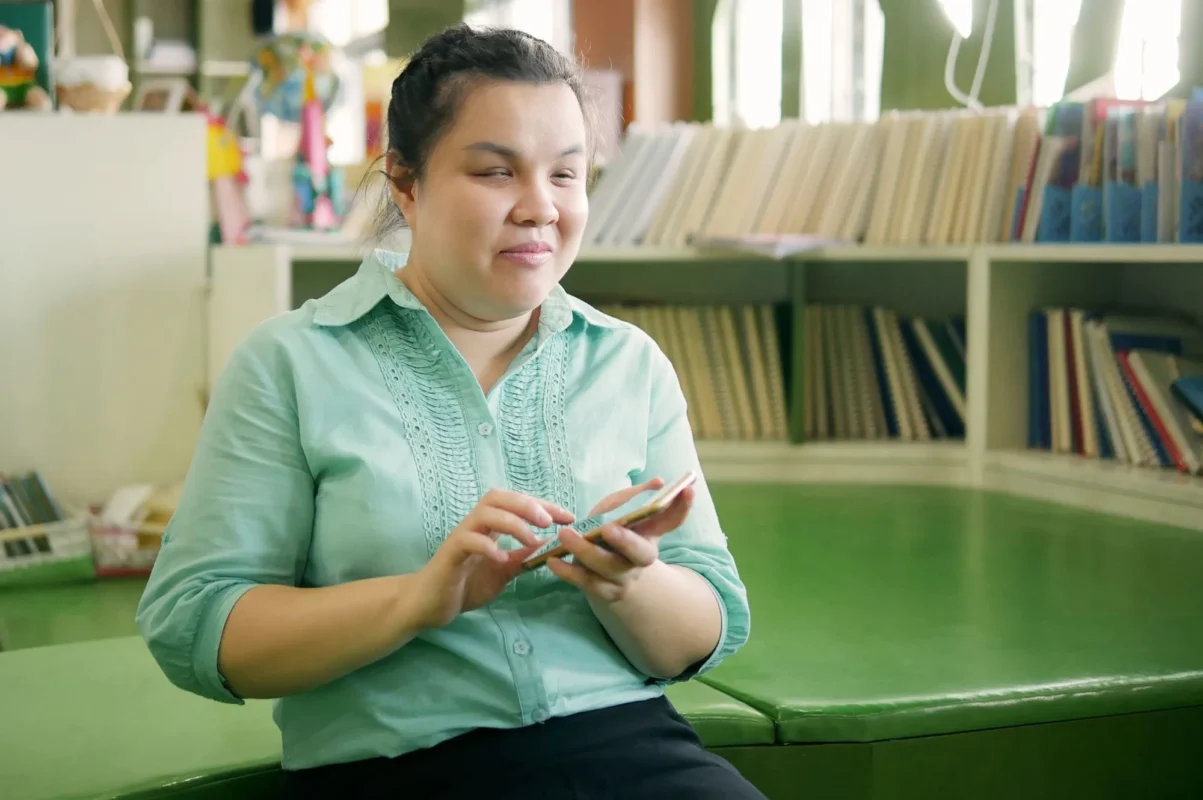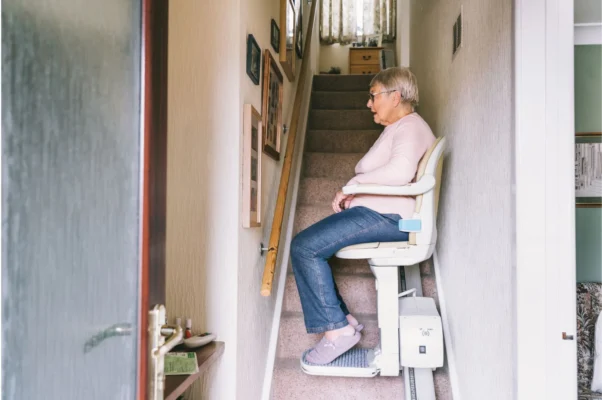Adaptive Technologies: Bridging the Gap to Independence for Adults with Disabilities
You may have heard of assistive technologies, which are technologies and objects invented specifically to aid people with disabilities in everyday life, but have you heard of adaptive technologies? These are a subcategory of assistive devices—technologies that have been adapted and enhanced from their original purpose to specifically fit the needs of people with disabilities. For many disabled folks, adaptive technologies can make a world of difference in everyday life, allowing for people to live, work, and thrive independently. To help you learn about these innovations and discover if any of them may be helpful for you, here are four examples of adaptive technologies available to help adults with disabilities embrace independence—
Closed Captioning
When you think of closed captioning, you most likely think of captions accompanying television programs. Though this is a very common use of closed captions, they can be applied in all kinds of contexts. Closed captions are an assistive technology added to screen and video devices to connect individuals with hearing impairments to the screen’s content. For hearing impaired individuals, closed captioning can be applied to more than just television. Captioning can be made available for meetings, lectures, classes, instructional videos, and so much more. The addition of closed captions allows people with hearing impairments to participate in these events independently without the need for an interpreter, boosting confidence and comprehension.
Eye and Head Tracking Technologies
For many individuals with motor disabilities, completing tasks that include small or precise movement, like moving a computer mouse or typing on a keyboard, can be tricky. Though most computers are able to be equipped with a wide variety of adaptive technologies, one of the most helpful for people with these kinds of disabilities is eye and/or head tracking technology. This addition to computers and laptops can allow an individual to use the movement of their eyes or head to move the mouse, type, and perform a number of digital actions. This technology opens up new possibilities for digital engagement, communication, enjoyment, and even employment for individuals with motor disabilities.
Household Adaptive Devices
Adaptive technologies in the household setting are some of the most common and recognizable kinds. Household adaptive devices often take the form of mobility aids, such as stair lifts and handrails in bathrooms/bedrooms, but can apply to any household task. They can be voice-activated lights and electronics, doorbells and alarms that light up instead of making a sound, adaptive utensils, and much more. These technologies can be a massive help to someone with a disability and allow them to live independently in their own home without the need for assistance.
Internet of Things Devices
A relatively new adaptive technology that has emerged in recent years is the Internet of Things, which is a software that can control all kinds of devices that are connected to it. This technology allows the controller to essentially have a ‘smart’ home, which they can control with a tablet or laptop. There are many devices that can be IoT adaptive, such as doorbells, lights, electricity, heating and AC, speakers, and phones. This type of technology is particularly helpful for individuals with disabilities as it allows a person to control nearly their entire home from one device. Much like the previously mentioned household adaptive technologies, the Internet of Things can help promote independence, allowing an individual to live in their own home with confidence.
As adaptive technologies keep becoming more and more available, the world becomes more and more accessible to individuals with disabilities. These innovations can change lives, help people stay connected, allow them to live independently, and overall have a better quality of life. Delta Center is proud to be able to offer adaptive technology to individuals with a variety of disabilities—adaptive telephones. These telephones help people stay connected with loved ones and the world without difficulty. They can be adapted for the hearing impaired, visually impaired, those who have cognitive disabilities, mobility disabilities, and more. We are dedicated to making sure you have the best resources available to help you live your life to the fullest. For more information regarding our adaptive telephones, visit this link.


